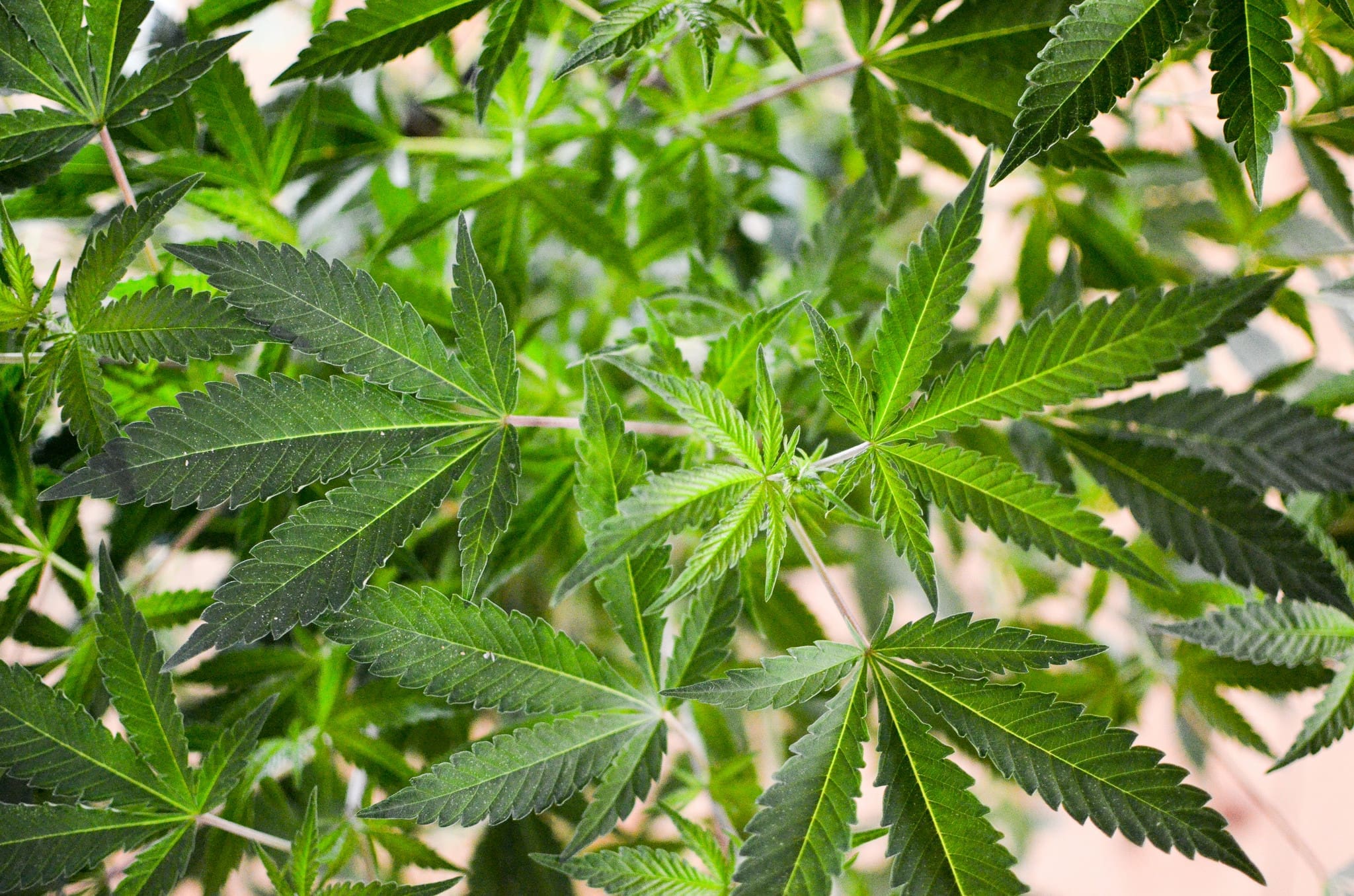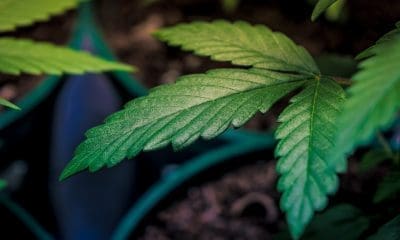Politics
Minnesota Lawmakers Approve Marijuana Legalization Bill With Overhaul Amendment In House Committee

Another Minnesota House committee has approved a bill to legalize marijuana, after members adopted a large-scale amendment to overhaul various provisions of the legislation.
The House Commerce Finance and Policy Committee passed the measure in a voice vote on Monday. The panel, chaired by bill sponsor Rep. Zack Stephenson (D), first took up the legislation in January, but it was always the plan to have the proposal returned to the committee.
Like a recently adopted change to a companion bill in the Senate from Sen. Lindsey Port (D), the House amendment that lawmakers approved is primarily meant to address concerns from industry stakeholders who are operating under a cannabis law enacted last year that legalized low-THC edibles in the state.
The overhaul “eliminates some of the cannabis regulations that don’t make sense in the context of a low dose hemp market,” Stephenson told fellow panel members.
Among other changes, the amendment adds two licensing categories for lower-potency hemp edible manufacturers and mid-size cannabis firms classified as mezzobusinesses. It also revises provisions on vertical integration and stipulates that hemp business owners and workers are not subject to criminal background check requirements.
In some ways, however, the House amendment is distinct from the one that a Senate panel adopted last week. For example, it lowers the amount of cannabis a person can possess in a private residence and also expands who qualifies as a social equity license applicant.
Advocates expect that the differences will ultimately be resolved in a conference committee following passage of the bills by their respective chambers.
With majorities in both the House and Senate and control over the governorship this session, Democratic-Farmer-Labor party officials are confident that legalization will be enacted in short order following the extensive committee consideration.
Gov. Tim Walz (D) recently released his biennial budget request, which included proposed funding to implement marijuana legalization and expungements, and made projections about the millions of dollars in cannabis tax revenue that his office estimates the state will earn after the reform is enacted.
Walz discussed his proposal in a recent interview, explaining why he’s calling for a tax rate on marijuana sales that’s nearly double that of the bill that’s advancing in the legislature.
That legislation is an iteration of the 2021 House-passed bill from former Majority Leader Ryan Winkler (D), who now serves as campaign chairman of the advocacy coalition MN is Ready.
The governor has called on supporters to join lawmakers and the administration in their push legalize marijuana this session, and he circulated an email blast in January that encourages people to sign a petition backing the reform.
Much of the revised bills that are advancing through committee are consistent with Winkler’s legislation, though there are a few key changes, in addition to all of the newly adopted amendments. For example, it adds a new license category for businesses that sell “lower-potency edible products.”
There would also be reduced regulatory requirements for those licensees, and they’d be able to permit on-site consumption if they have a liquor license, which is meant to ensure that shops currently selling low-THC beverages and edibles don’t face disruption.
But throughout the committee process, industry stakeholders have pushed for additional changes to the legislation so that businesses that entered the market under the law enacted in 2022 aren’t excessively impacted.
With respect to the sponsor’s overhaul amendment that the committee adopted on Monday, the bill as revised would cap the amount of cannabis allowed in a private residence at 1.5 pounds, instead of five pounds. It would also make it so people could qualify as a social equity license applicant if they’ve been convicted of a cannabis-related offense or if they’re considered a socially disadvantaged farmer.
Stephenson pointed out on Monday that the substitute makes “modifications to some of the vertical integration limits on the cannabis license track.”
For example, the amendment says that adult-use marijuana retailer licensees can also hold a license to be a delivery service, medical cannabis dispensary or event organizer. Marijuana manufacturers can hold licenses for cultivation, medical cannabis processing and event organizing. Low-THC hemp edible manufacturers can also be licensed to cultivate industrial hemp.
The amendment also stipulates that regulators must act within 24 hours if a locality notifies them that a cannabis businesses poses an immediate public health or safety threat. The bill has always prohibited localities from outright banning cannabis businesses from operating in their area, but the revision now explicitly says hemp businesses also can’t be banned.
Additionally, regulators would be empowered to disqualify, through rulemaking, people with certain felony convictions from owning a cannabis business. Those disqualifications could be set aside upon review on a case-by-case basis. Hemp business owners and workers would not be subject to criminal background checks.
A new section was added that would make certain data public, including information on license applications and any disciplinary actions taken against license holders.
The amendment also maintains a section that was removed from the Senate bill on establishing a Substance Use Disorder Advisory Council that would be responsible for “develop and implement a comprehensive and effective statewide approach to substance use disorder prevention and treatment.” The advisory council would need to hold its first meeting by October 1, 2023.
The substitute was also drafted to prioritize cannabis microbusinesses for the grants programs established under the bill.
Unlike the Senate substitute that was adopted in committee last week, the House amendment does not include specific plant canopy size restrictions, and it also excludes language on creating a tribal medical cannabis program. The House version doesn’t say that prospective licensees would have their applications scored higher if they provide a “diversity plan,” either.
Also missing from the House amendment is language restricting on-site consumption or a requirement that cannabis businesses provide patrons with information on substance misuse treatment options.
A required report on traffic safety issues that was adopted as part of the Senate amendment does not appear in the House version. And the two proposals differ in how they approach penalties for people who sell marijuana without a license.
There are also several pages of technical amendments and appropriations language in the House measure that was adopted.
At the House panel’s hearing on Monday, members of the panel also adopted a separate an amendment that adds an appropriations section to fund grants to the University of Minnesota in support of research on cannabis genetics and agronomy.
The committee rejected an amendment that would have greatly increased the amount of funding appropriated to the State Patrol under the bill while clarifying that some of the money be spent on continuing education training for drug recognition experts. Stephenson said he is sympathetic to its aims, but did not want to change any monetary amounts in the bill until a fiscal note is prepared.
Members also defeated a proposed revision to place a potency cap on cannabis flower of 35 percent THC and limit concentrates to 60 percent THC.
The bill’s next stop is the House Taxes Committee. Meanwhile, the Senate version is heading to the Rules Committee.
Here are the main components of the revised marijuana legalization bills, HF 100 and SF 73:
Adults 21 and older could purchase up to two ounces of cannabis and cultivate up to eight plants, four of which could be mature.
They could possess up to two ounces in a public place and up to five pounds in a private dwelling.
Gifting up to two ounces of marijuana without remuneration between adults would be permitted.
It would promote social equity, in part by ensuring that diverse licensing by scoring equity applicants higher.
Prior marijuana records would also be automatically expunged. The Bureau of Criminal Apprehension would be responsible for identifying people who are eligible for relief and process the expungements.
In addition to creating a system of licensed cannabis businesses, municipalities and counties could own and operate government dispensaries.
On-site consumption permits could be approved for events, and cannabis delivery services would be permitted under the bill.
Unlike in many legal states, local municipalities would be banned from prohibiting marijuana businesses from operating in their areas, though they could set “reasonable” regulations on the time of operation and location of those businesses.
Retail cannabis sales would be taxed at eight percent. Part of that revenue would fund substance misuse treatment programs, as well as grants to support farmers.
A new Office of Cannabis Management would be established, and it would be responsible for regulating the market and issuing cannabis business licenses. There would be a designated Division of Social Equity.
People living in low-income neighborhoods and military veterans who lost honorable status due to a cannabis-related offense would be considered social equity applicants eligible for priority licensing.
The legislation as revised fixes an issue in current statute that prohibits liquor stores from selling THC products.
It also contains language banning synthetic cannabinoids, which is consistent with Board of Pharmacy rules put into place last year.
—
Marijuana Moment is tracking more than 1,000 cannabis, psychedelics and drug policy bills in state legislatures and Congress this year. Patreon supporters pledging at least $25/month get access to our interactive maps, charts and hearing calendar so they don’t miss any developments.
![]()
Learn more about our marijuana bill tracker and become a supporter on Patreon to get access.
—
The House panels that have passed the legislation in recent weeks are the Transportation Finance and Policy Committee, Economic Development Finance and Policy Committee, Public Safety Finance and Policy Committee, Health Finance and Policy Committee, Education Finance Committee, Human Services Policy Committee, Workforce Development Finance and Policy Committee, Agriculture Finance and Policy Committee, State and Local Government Finance and Policy Committee, Labor and Industry Finance and Policy Committee, Environment and Natural Resources Finance and Policy Committee, Judiciary Finance and Civil Law Committee and Commerce Finance and Policy Committee (now twice).
The Senate committees that have signed off so far are the State and Local Government and Veterans Committee, Labor Committee, Human Services Committee, Health and Human Services Committee, Transportation Committee, Environment, Climate, and Legacy Committee, Agriculture, Broadband, and Rural Development Committee, Jobs and Economic Development Committee, Commerce and Consumer Protection Committee and Judiciary and Public Safety Committee (twice).
Lawmakers and the governor have expressed optimism about the prospects of legalization this session, especially with Democrats newly in control of both chambers, whereas last session they only had a House majority.
Following their election win in November, Democrats internally agreed to discuss the issue imminently.
House Speaker Melissa Hortman (D) said recently that she expects cannabis reform to be included in the governor’s forthcoming budget request, though she reiterated that the reform “will take a long time” to move through the legislature.
While marijuana reform was excluded from a list of legislative priorities that Democrats unveiled last month, Hortman said that the issue is “a priority,” albeit a “very big, complicated.”
The governor included funding for implementing legalization in his last executive budget request, but lawmakers were unable to enact the policy change. He and Hortman have differing opinions about how quickly the issue can advance this session, however, with Walz recently saying it would be done “by May” and the speaker indicating it could take until next year.
Winkler, who recently launched a THC beverage company, told Marijuana Moment that he agrees with the governor, saying “it is likely that [passing legalization] will be done by May.”
“The reason is that the legislature adjourns until next year at the end of May, and so if they don’t do it in that timeline, it’ll take another full year—and I don’t think anything will be improved or bettered by waiting,” he said. “So it’s in everyone’s interest to get this bill passed.”
Two polls released in September found that the majority of Minnesota residents support adult-use marijuana legalization—and one survey showed that even more Minnesotans approve of the state’s move to legalize THC-infused edibles that was enacted last year.
A survey conducted by officials with the House at the annual State Fair that was released in September also found majority support for legalization. That legislature-run poll found that 61 percent of Minnesotans back legalizing cannabis for adult use.
Support was up this year from 58 percent when the House Public Information Services polled fair goers on the issue in 2021. In 2019, the House poll found 56 percent support for legalization.
Photo courtesy of Philip Steffan.
















